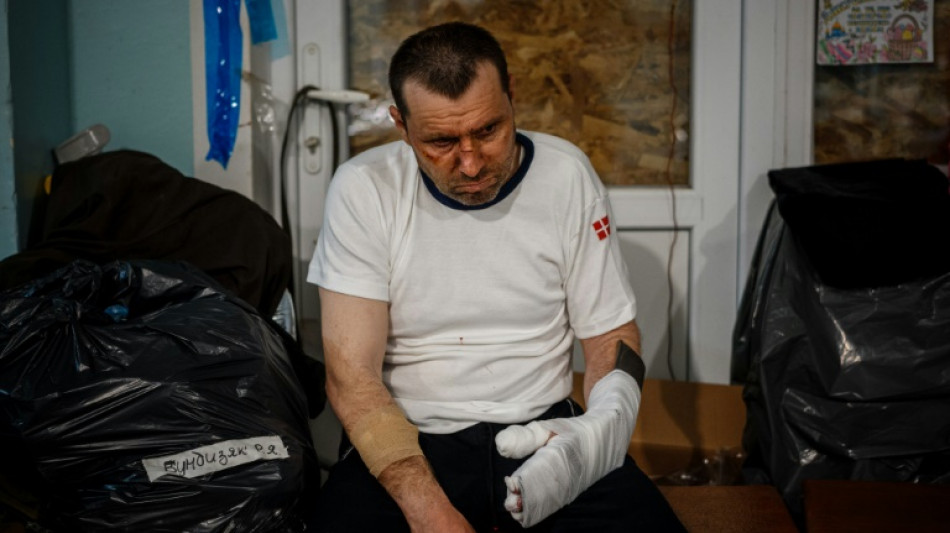
-
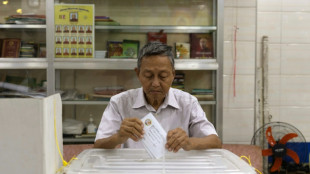 How Myanmar's junta-run vote works, and why it might not
How Myanmar's junta-run vote works, and why it might not
-
Watkins wants to sicken Arsenal-supporting family

-
 Arsenal hold off surging Man City, Villa as Wirtz ends drought
Arsenal hold off surging Man City, Villa as Wirtz ends drought
-
Late penalty miss denies Uganda AFCON win against Tanzania

-
 Watkins stretches Villa's winning streak at Chelsea
Watkins stretches Villa's winning streak at Chelsea
-
Zelensky stops in Canada en route to US as Russia pummels Ukraine
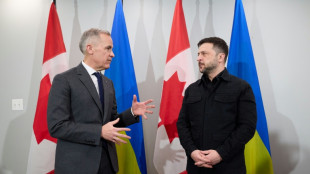
-
 Arteta salutes injury-hit Arsenal's survival spirit
Arteta salutes injury-hit Arsenal's survival spirit
-
Wirtz scores first Liverpool goal as Anfield remembers Jota

-
 Mane rescues AFCON draw for Senegal against DR Congo
Mane rescues AFCON draw for Senegal against DR Congo
-
Arsenal hold off surging Man City, Wirtz breaks Liverpool duck

-
 Arsenal ignore injury woes to retain top spot with win over Brighton
Arsenal ignore injury woes to retain top spot with win over Brighton
-
Sealed with a kiss: Guardiola revels in Cherki starring role

-
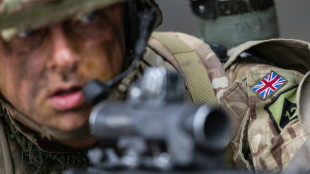 UK launches paid military gap-year scheme amid recruitment struggles
UK launches paid military gap-year scheme amid recruitment struggles
-
Jota's children join tributes as Liverpool, Wolves pay respects

-
 'Tired' Inoue beats Picasso by unanimous decision to end gruelling year
'Tired' Inoue beats Picasso by unanimous decision to end gruelling year
-
Thailand and Cambodia declare truce after weeks of clashes
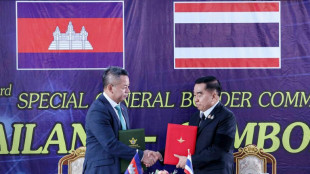
-
 Netanyahu to meet Trump in US on Monday
Netanyahu to meet Trump in US on Monday
-
US strikes targeted IS militants, Lakurawa jihadists, Nigeria says

-
 Cherki stars in Man City win at Forest
Cherki stars in Man City win at Forest
-
Schwarz records maiden super-G success, Odermatt fourth

-
 Russia pummels Kyiv ahead of Zelensky's US visit
Russia pummels Kyiv ahead of Zelensky's US visit
-
Smith laments lack of runs after first Ashes home Test loss for 15 years

-
 Russian barrage on Kyiv kills one, leaves hundreds of thousands without power
Russian barrage on Kyiv kills one, leaves hundreds of thousands without power
-
Stokes, Smith agree two-day Tests not a good look after MCG carnage

-
 Stokes hails under-fire England's courage in 'really special' Test win
Stokes hails under-fire England's courage in 'really special' Test win
-
What they said as England win 4th Ashes Test - reaction

-
 Hong Kongers bid farewell to 'king of umbrellas'
Hong Kongers bid farewell to 'king of umbrellas'
-
England snap 15-year losing streak to win chaotic 4th Ashes Test

-
 Thailand and Cambodia agree to 'immediate' ceasefire
Thailand and Cambodia agree to 'immediate' ceasefire
-
Closing 10-0 run lifts Bulls over 76ers while Pistons fall

-
 England 77-2 at tea, need 98 more to win chaotic 4th Ashes Test
England 77-2 at tea, need 98 more to win chaotic 4th Ashes Test
-
Somalia, African nations denounce Israeli recognition of Somaliland

-
 England need 175 to win chaotic 4th Ashes Test
England need 175 to win chaotic 4th Ashes Test
-
Cricket Australia boss says short Tests 'bad for business' after MCG carnage

-
 Russia lashes out at Zelensky ahead of new Trump talks on Ukraine plan
Russia lashes out at Zelensky ahead of new Trump talks on Ukraine plan
-
Six Australia wickets fall as England fight back in 4th Ashes Test

-
 Dental Implant Financing and Insurance Options in Georgetown, TX
Dental Implant Financing and Insurance Options in Georgetown, TX
-
Man Utd made to 'suffer' for Newcastle win, says Amorim

-
 Morocco made to wait for Cup of Nations knockout place after Egypt advance
Morocco made to wait for Cup of Nations knockout place after Egypt advance
-
Key NFL week has playoff spots, byes and seeds at stake

-
 Morocco forced to wait for AFCON knockout place after Mali draw
Morocco forced to wait for AFCON knockout place after Mali draw
-
Dorgu delivers winner for depleted Man Utd against Newcastle

-
 US stocks edge lower from records as precious metals surge
US stocks edge lower from records as precious metals surge
-
Somalia denounces Israeli recognition of Somaliland

-
 The Cure guitarist and keyboard player Perry Bamonte dies aged 65
The Cure guitarist and keyboard player Perry Bamonte dies aged 65
-
Draper to miss Australian Open

-
 Police arrest suspect after man stabs 3 women in Paris metro
Police arrest suspect after man stabs 3 women in Paris metro
-
Former Montpellier coach Gasset dies at 72

-
 Trump's Christmas gospel: bombs, blessings and blame
Trump's Christmas gospel: bombs, blessings and blame
-
Russia lashes out at Zelensky ahead of new Trump meeting on Ukraine plan


Wounded soldiers treated at night as Bakhmut battle rages
Deep inside the wound, the Ukrainian soldier's heart is beating. It is 9:00 pm and he has just been brought into a field hospital from the battle for Bakhmut.
A bullet went through the young man's left arm, crossed his chest and lodged itself into his right arm.
Some 15 doctors, nurses and assistants work around the soldier and five other wounded fighters brought in to this first aid point of the 93rd mechanised brigade.
The facility is located in a village around 15 kilometres (nine miles) from Bakhmut -- the epicentre of the fighting between Ukrainian and Russian forces.
"It's been tough for the past month," said Volodymyr Pikhulevskiy, a 38-year-old surgeon and a member of the 15-strong medical team at the facility.
"On some days there are 100 wounded, other days 50 or 60," Pikhulevskiy said. "Everything depends on what is going on in Bakhmut."
"It's very difficult for our guys there. I can't imagine how it is there. It is terrifying," he said.
The first aid point was initially based in Bakhmut but was forced to leave in December as Russian troops advanced further into the Ukrainian city.
They tried to return in January but were forced back because of the intensive shelling.
Four doctors from the unit have been killed since the Russian invasion of Ukraine began more than a year ago.
- Wounded moved at night -
Once he has been treated, the soldier is quickly despatched to a hospital in the nearest city -- like the other fighters who arrived with him.
The facility is one of the stabilisation units located between the front line and hospitals in the big cities.
Each Ukrainian army brigade has its own centres.
"Our aim is to save lives and send the wounded to a hospital," Pikhulevskiy said.
Just as the first batch of wounded soldiers of the night left, another arrived at around 10:30 pm -- all of them with shrapnel wounds.
The majority were in trenches near Bakhmut.
The soldiers look exhausted. Some were injured in the morning or during the day but are only moved to the first aid facility at night since Russian forces regularly shell the roads during the day.
"The wounded are only evacuated when it's dark," said Lyudmyla Symchenko, a 55-year-old anaesthetist.
The driver of an armoured car has his hand covered in blood. The ends of his fingers have been blown off.
Another soldier in his twenties received a shrapnel wound behind his head, close to his backbone. The doctors say it is too difficult and risky to try and pull the metal out.
Two others have shrapnel in their backs. They wince in pain as the doctors remove the metal.
- 'State of shock' -
Symchenko adopts a stern tone to tell one of the patients to stretch out his arm for an injection.
"Many soldiers are traumatised from the shelling and so they do not understand immediately," she explained.
"Yesterday, for example, we had trouble taking an axe out of a man's hand. He was in shock and would not let go of the axe. It is a reaction to stress," she said.
Lightly wounded at the shoulder by some shrapnel, 25-year-old Denis is waiting to be taken to hospital.
He is a member of a paratrooper unit not linked to the 93rd brigade. He was digging a trench south of Bakhmut when he was hit by mortar fire.
He said his unit lacked resources and had suffered "many losses".
"There were 124 fighters at the start of the war. Now, there are fewer than 80," he said.
Just after midnight, calm returns to the medical unit.
All the wounded have been taken to hospitals far from the front and there are no more arrivals.
The doctors say they have treated 70 soldiers over a 24-hour period.
Sitting in silence, the staff stare at their phones.
"Our only distraction is the phone. We don't go out. We're here all the time. We sleep here, we eat here, we work here," said Symchenko, her eyes red with exhaustion.
"In a month, I've only been out once to the dentist and the hairdresser to cut my hair shorter so it would dry quicker."
P.M.Smith--AMWN



